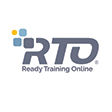This article is brought to you by Ready Training Online. 
Employees aren’t satisfied with their job if they don’t trust their employer, and one of the foundations of employee trust is knowing the company cares about their safety, said Tom Hart, director of business development at Ready Training Online (RTO).
“I’ve been in the retail business since 1978, and the last thing I’ve ever wanted to hear from an employee was ‘I reported something or called for assistance and didn’t get a response.’” he said. “Safety has to be a top priority for operators, and turnover from safety issues is very real. Operators need to be constantly learning how to enhance employee safety in the store—and employees will notice if they don’t.”
His No. 1 piece of advice for retailers: Prepare your employees for the unexpected. “There are all manner of things that can happen when dealing with the public. The most effective outcome in my experience—I’ve been through every scenario in my years as a retailer—came down to whether or not I was prepared. When dealing with an angry customer, for example, if I have practical ways to lower the temperature and de-escalate the situation, that's the best-case scenario.”
Ready Training Online launched de-escalation training in 2024. It covers tactics such as getting to a safe place, creating a barrier between the employee and the customer, lowering your voice, showing empathy and trying to resolve the situation.
He also suggests that retailers get feedback directly from their store employees to evaluate their current safety practices and find room for improvement. “They are the best source to tell you what you’re missing and what types of incidents have been occurring. You need to understand the data in order to solve the problem. From there, you can determine what kind of training you need to provide or other solutions necessary to close the gaps.”
Retailers should also create a strong relationship with their community and with members of local law enforcement. “Don’t wait for something to happen before you contact them. They can provide good insight or training for safety too.”
Other training courses related to personal safety, such as slip and fall prevention when in the store, fire safety or courses for managers about how to tackle difficult safety topics (for example, preparing an employee for the possibility of a store robbery) will also go a long way in enhancing employee safety in the store, said Hart.
“At RTO, we focus on training for real-life scenarios. These modules have a direct impact on lives—both employee and customer. You never want to have an incident in the store where after the fact you say, ‘I could have done something to prevent this.’ It’s non-negotiable for retailers to prepare their staff for any and all safety scenarios,” he said.
This is the second in a two-part series from Ready Training Online. Read part one on food safety here.